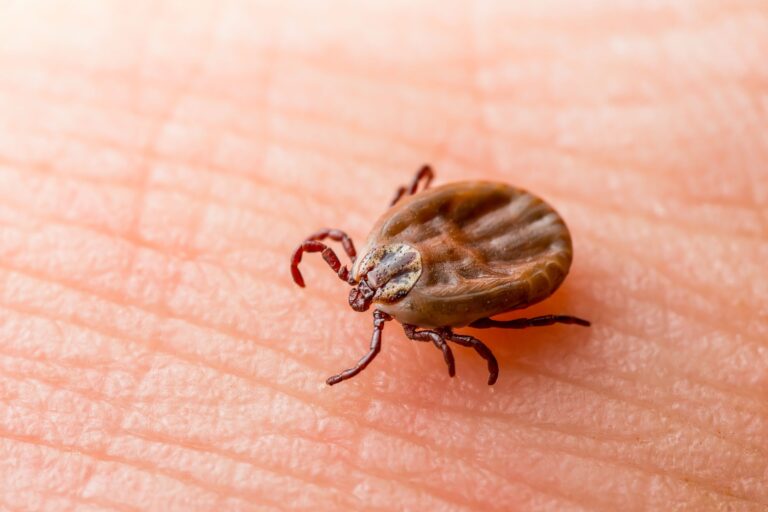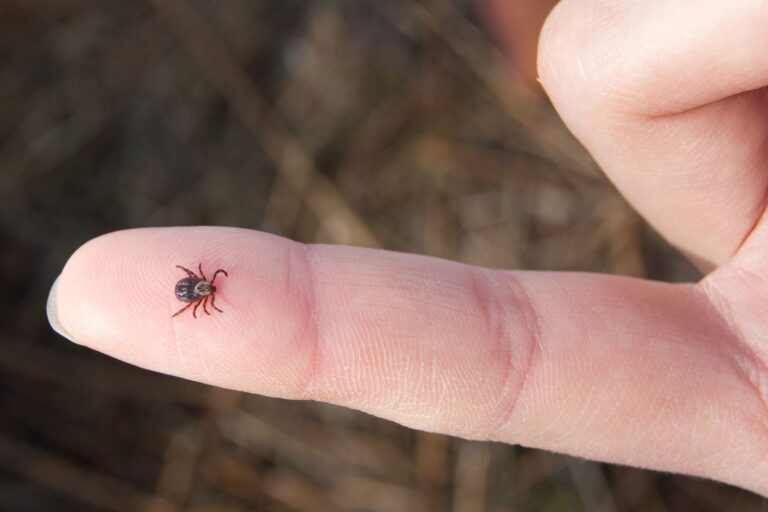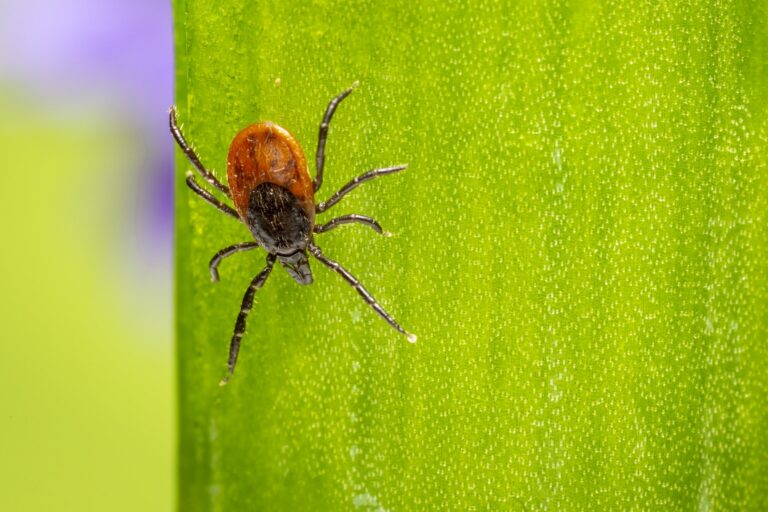New Jersey Tick Control Services
Ticks can be more than just a mere annoyance. They can pose a serious health risk and leave you and your pets vulnerable to diseases such as Lyme disease. If left unchecked, a tick infestation can lead to severe health issues and discomfort for you and your pets.
Since 1970, Horizon Pest Control has provided residents in New Jersey and New York with top-quality, professional tick inspection and extermination services. All of our technicians are highly trained and certified by the state. We are proud to bring both residential and commercial clients the best in extermination services.
At Horizon Pest Control, our team of experts is trained to conduct a thorough inspection of your home or business to identify the presence of ticks. We use our expertise to take the necessary steps to eliminate these pests effectively. Our approach is aimed at targeting the root cause of the infestation and breaking the breeding cycle to prevent future infestations. Trust us to provide you with a comprehensive solution to your tick problem.
Contact us to learn more about our Home Guard Program and about what we can to do make your home or business a safer and better place for you today!
What do Ticks Look Like?
Ticks are blood-sucking parasites that belong to a variety of species, which can have colors ranging from grayish-white, brown, black, yellow, to reddish-brown. If you want to recognize an adult tick, look out for their eight legs, small and flat shape, and their ovular body.
Once they feed on the blood of their host, they become engorged and swell in size. While ticks usually inhabit wooded and bushy regions, they can be brought indoors by pets or humans on shoes and clothing. Like spiders, ticks can pose a threat to human and animal health.
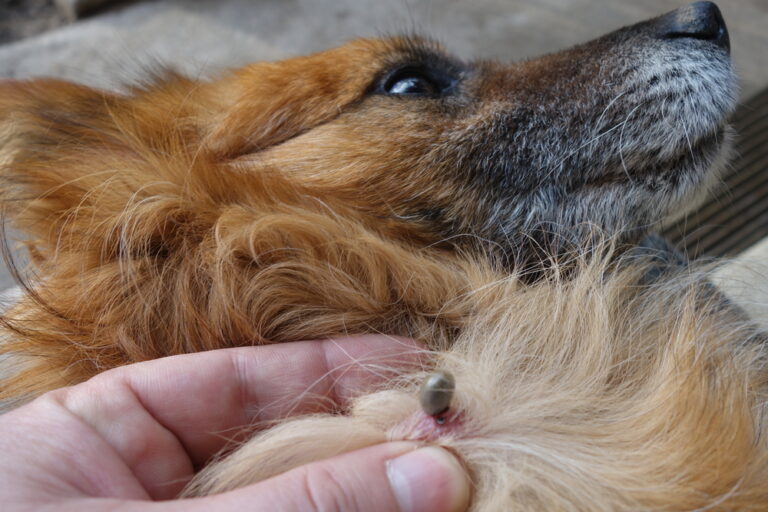
Signs of a tick infestation include:
-
Seeing a tick – where there’s one, there are more
-
Small, irritating bites on your legs or other parts of your body
-
Tick-borne illness - if you or a family member have symptoms such as headaches, fatigue, fever, rashes, or chills, it may be caused by ticks.Tick-borne illness - if you or a family member have symptoms such as headaches, fatigue, fever, rashes, or chills, it may be caused by ticks.
-
Your pets are scratching or feeling restless
-
Dark specks on your pet’s fur or skin
Types of Tick in NJ
NJ is home to various tick species, and if you suspect a tick infestation or are experiencing symptoms such as fever, rashes, nausea, and vomiting that you suspect may be caused by ticks, it is crucial to consult your healthcare provider and a qualified pest control service to inspect your home thoroughly.
Below we list the most common types of ticks found in New Jersey:
-
Deer Ticks (also known as black-legged ticks): This type of tick is the most common in the Northeast, and it the most dangerous because it is known to carry Lyme disease. Deer ticks are usually found in tall grasses and bushes as well as fences.
-
American Dog Ticks (also known as wood ticks): American dog ticks can also be dangerous, and are known to cause Rocky Mountain Spotted Fever (RMSF). If you or a family member is struggling with nausea, vomiting, or rashes that look like spots around wrists or ankles, it is important to consult a doctor.
-
Brown Dog Ticks: These types of ticks can pose serious threats to your four-legged family members. As their name suggests, these types of ticks typically stick to dogs.
-
Lone Star Ticks: Although these types of ticks are usually found in the South, in the last couple of years, we have seen an increase in them in the eastern part of the US, and especially New Jersey. These types of ticks are known to bite and can transmit a number of illnesses.
Commercial Tick Solutions
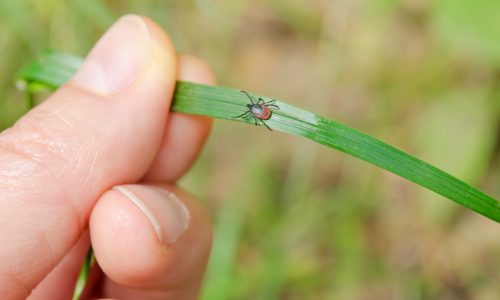
Residential Tick Solutions
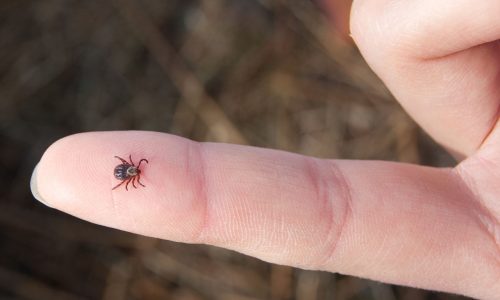
Ticks & Lyme Disease
Ticks pose a significant threat to human and animal health because they can transmit various diseases, including Lyme disease, which is caused by the bacteria Borrelia burgdorferi. When infected ticks bite humans or animals, they can spread the bacteria and cause serious health problems.
The black-legged tick, which is prevalent in New Jersey and New York, is one of the most common carriers of Lyme disease in the United States. The western black-legged tick is another common carrier. Ticks are most active during the warmer months, typically from spring to early fall, which increases the risk of being bitten during these times.
To help prevent a tick infestation, you should:
-
When hiking or camping, avoid going off-trail or into heavily wooded areas where ticks like to live
-
Wear long-sleeved shirts and tuck your pants into your socks when working outdoors during tick season
-
Wear lighter colored clothes so that ticks are more easily spotted
-
Inspect your pets before bringing them inside
-
Use insect repellents to discourage ticks from hitching a ride
If you see ticks in your yard, on your pet, or yourself, you should schedule a pest inspection right away to ensure that the problem is handled quickly and effectively.


